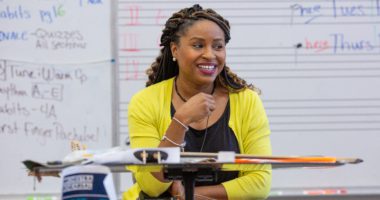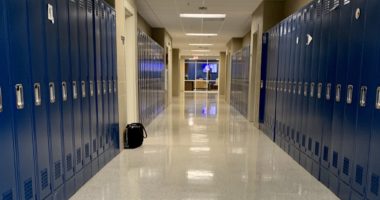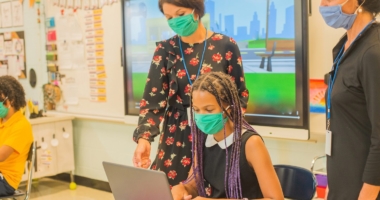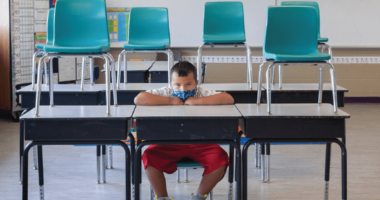No Computer, No Wi-Fi, & No Cell Coverage While America Is Supposed to be Learning Online.
John Daniel, superintendent of Cottonwood Public Schools in rural Oklahoma, talks about the challenges of making sure students don’t fall behind when many of his students and teachers don’t have access to computers, Wi Fi, or even reliable cell phone service. The one good thing that might come out of this experience, Daniel said, is a public commitment to ensuring digital access to all of Oklahoma and the rest of the country. You can learn more about Daniel and Cottonwood if you listen to Episode 2 of Season 2 of ExtraOrdinary Districts.
“It is a horrible time in our nation,” says John Daniel, superintendent of Cottonwood Public Schools in rural Oklahoma, featured in ExtraOrdinary Districts. Daniel is particularly worried about his students’ losing out on months of schooling. “It takes me years to get them caught up, and to have them drop back three or four months is a big deal.” But, he adds, “It’s also exciting” because by the time the pandemic recedes, every school in Oklahoma and the country should be better prepared to provide distance learning. “There will be some neat things coming out of it.” In the meantime, he has asked every one of his teachers to have a plan to be in touch with students and provide them with plenty of practice in reading and math without overwhelming parents, a charge made difficult by the fact that 30 or 40 percent of both teachers and students have no access to Wi-Fi or even reliable cell phone service. In this inaugural episode of ExtraOrdinary Districts in Extraordinary Times, a superintendent in rural Oklahoma talks with Karin Chenoweth, Education Trust’s writer-in-residence, about the unprecedented school closures caused by the Covid-19 pandemic. Afterward, Karin talks with Ed Trust’s director of practice, Tanji Reed Marshall, about how what Daniel said fits into what educators elsewhere are saying. This podcast is supported by The Wallace Foundation.
Podcast: Play in new window | Download
Subscribe: Apple Podcasts | Google Podcasts | RSS












